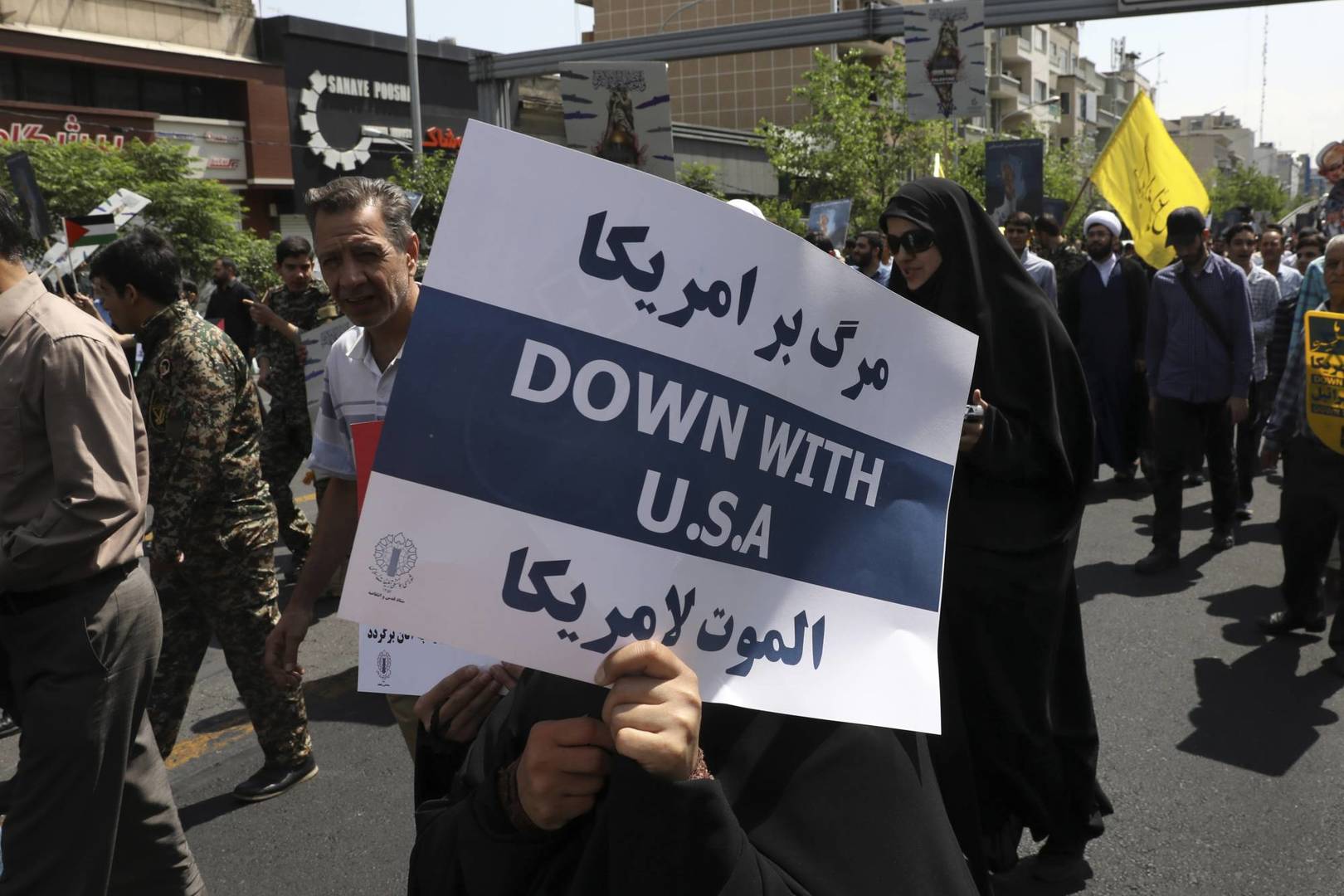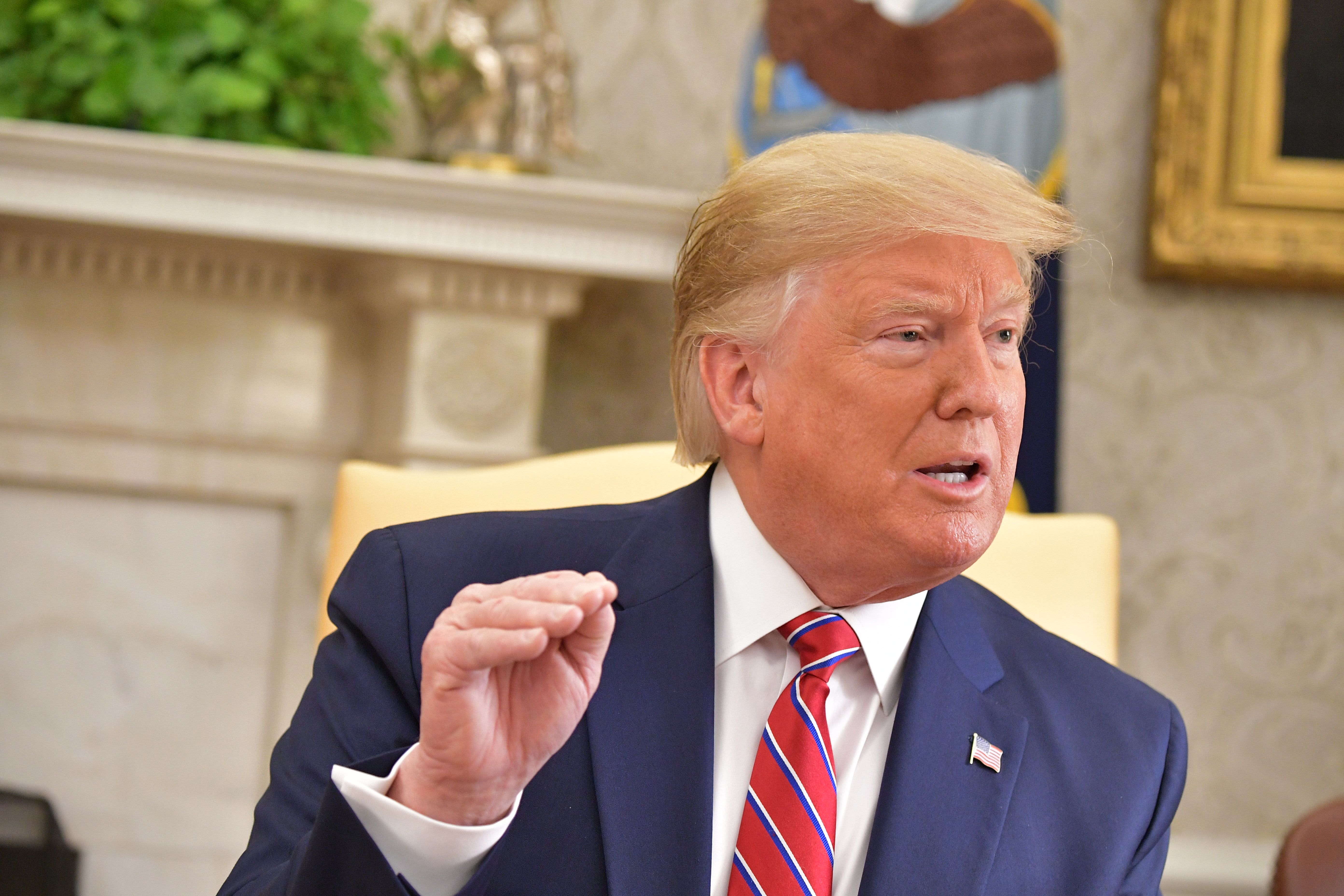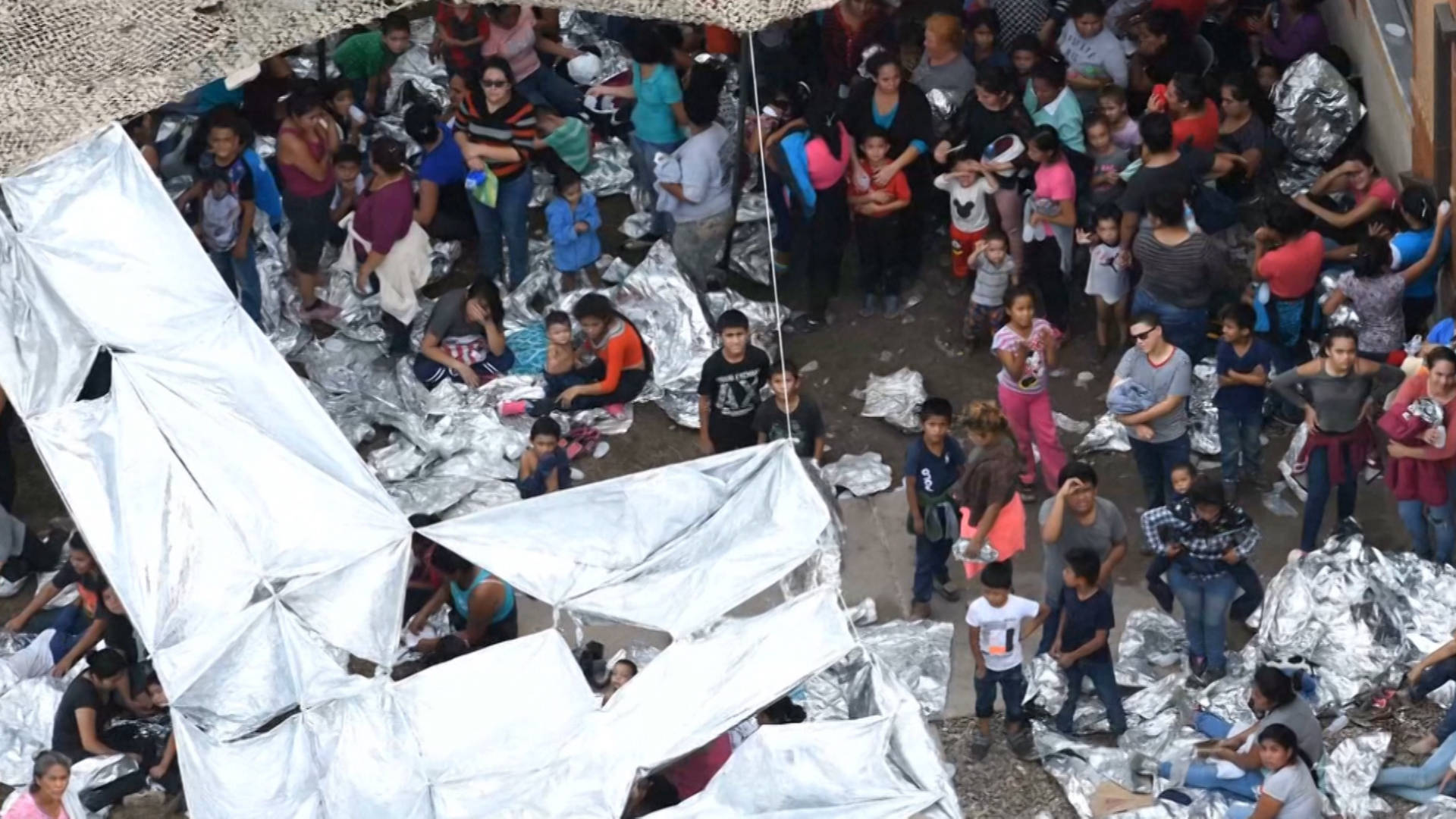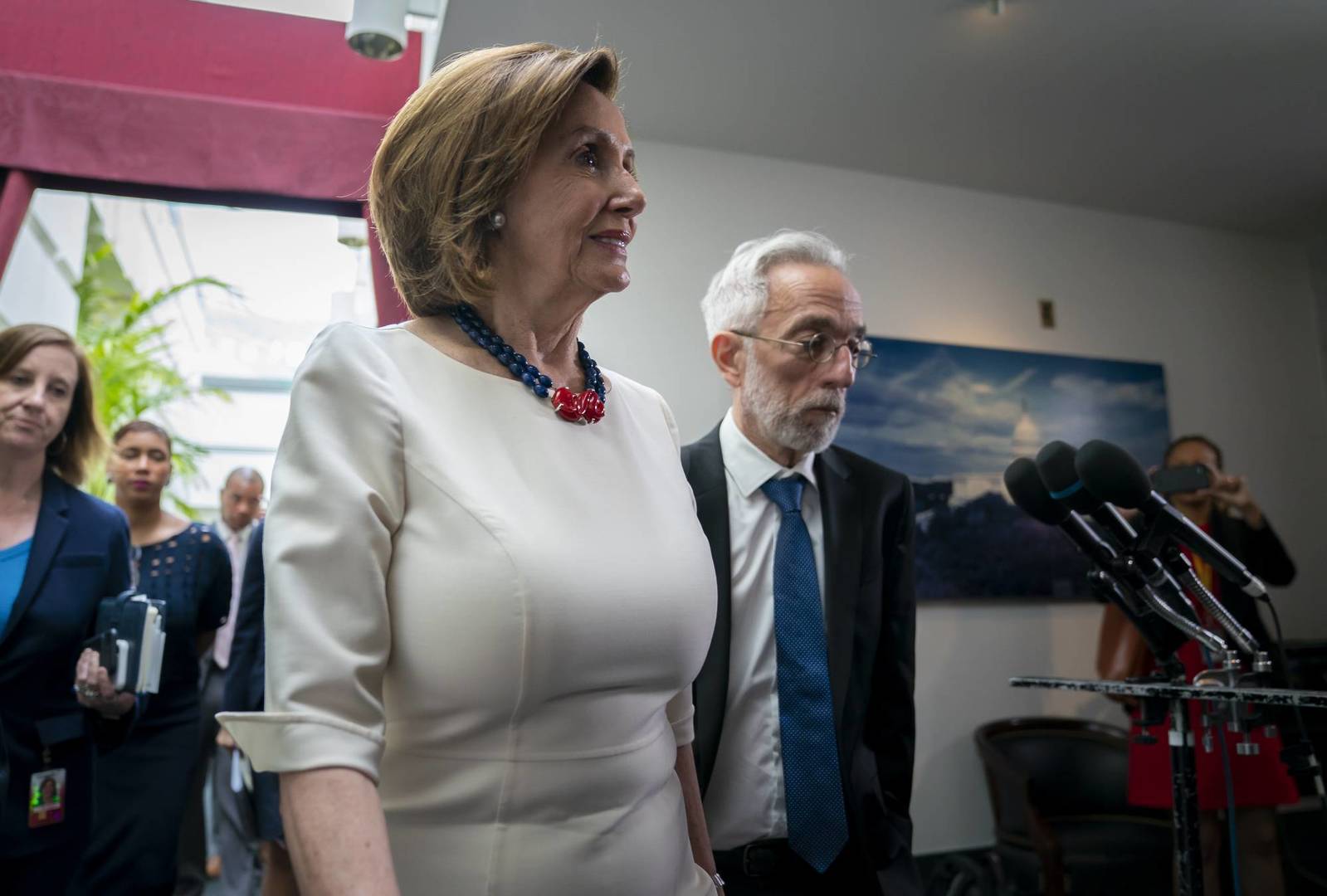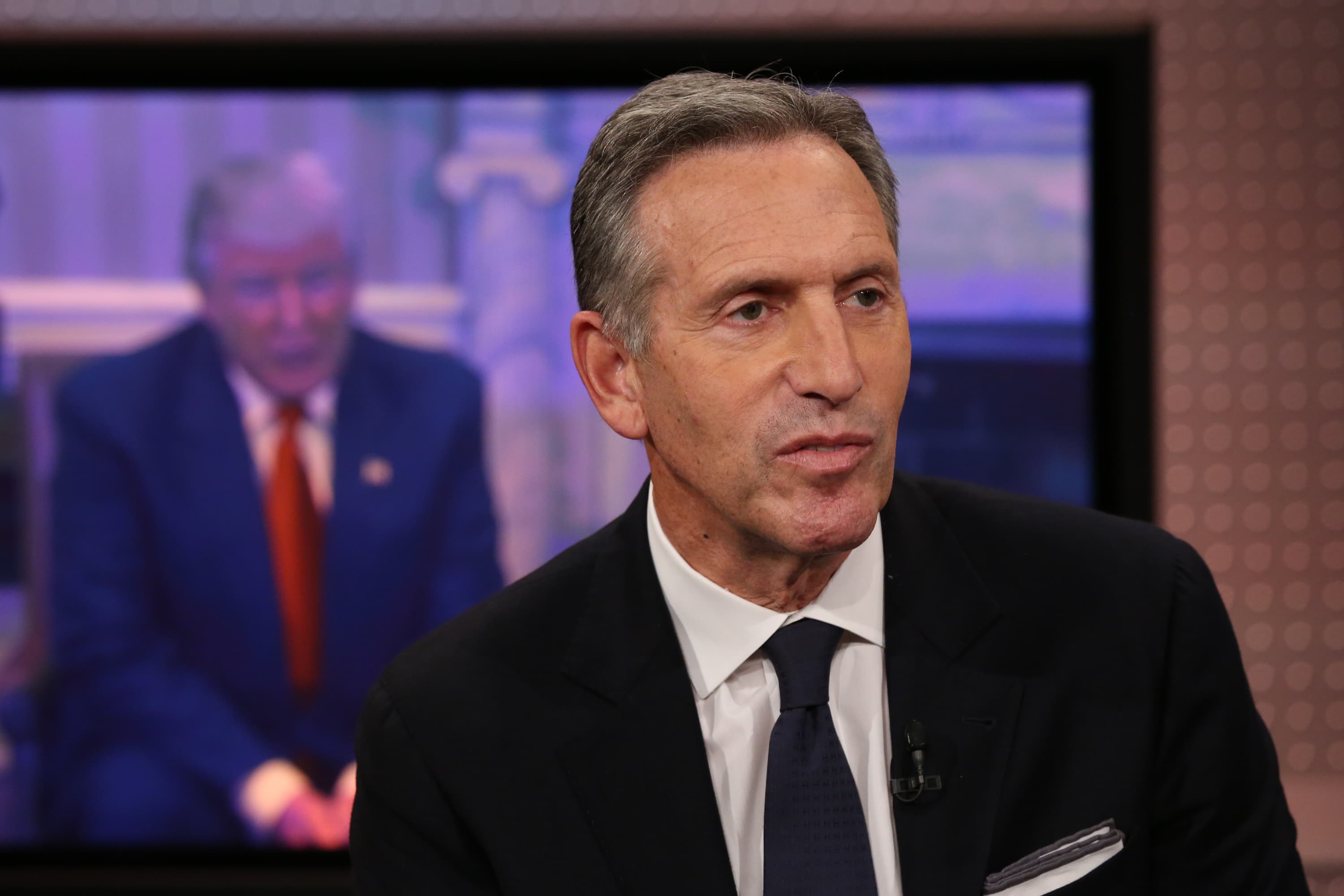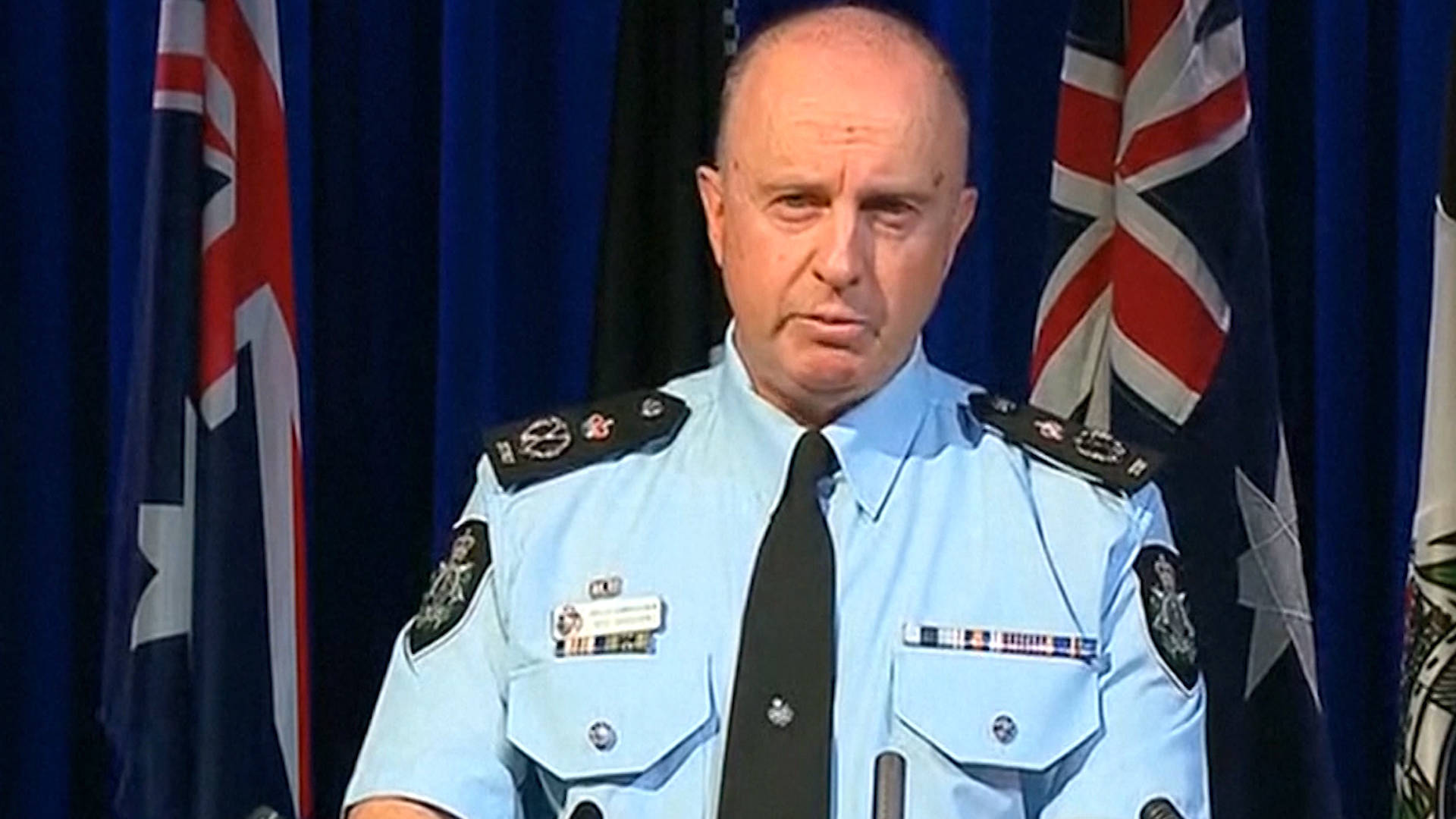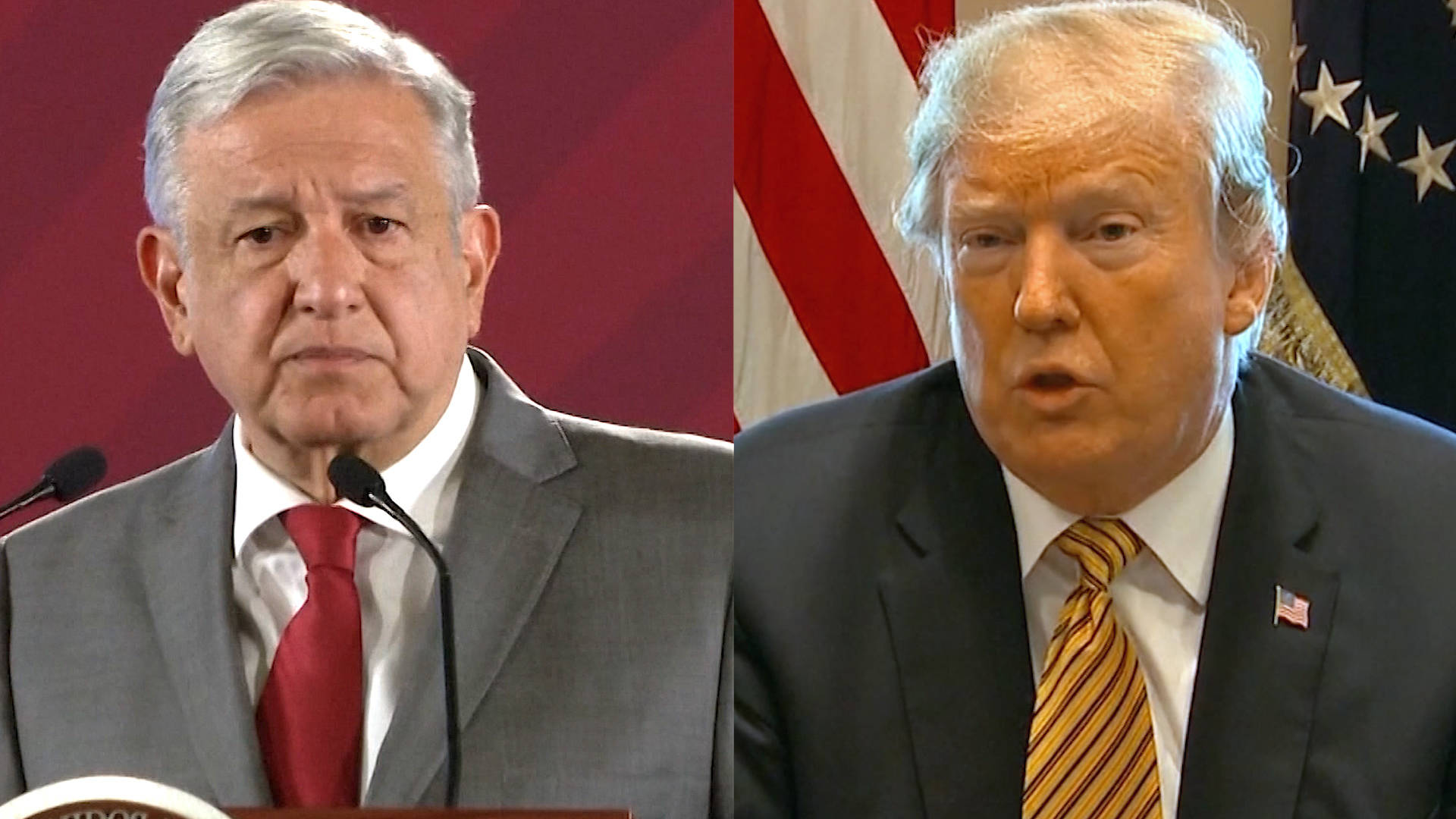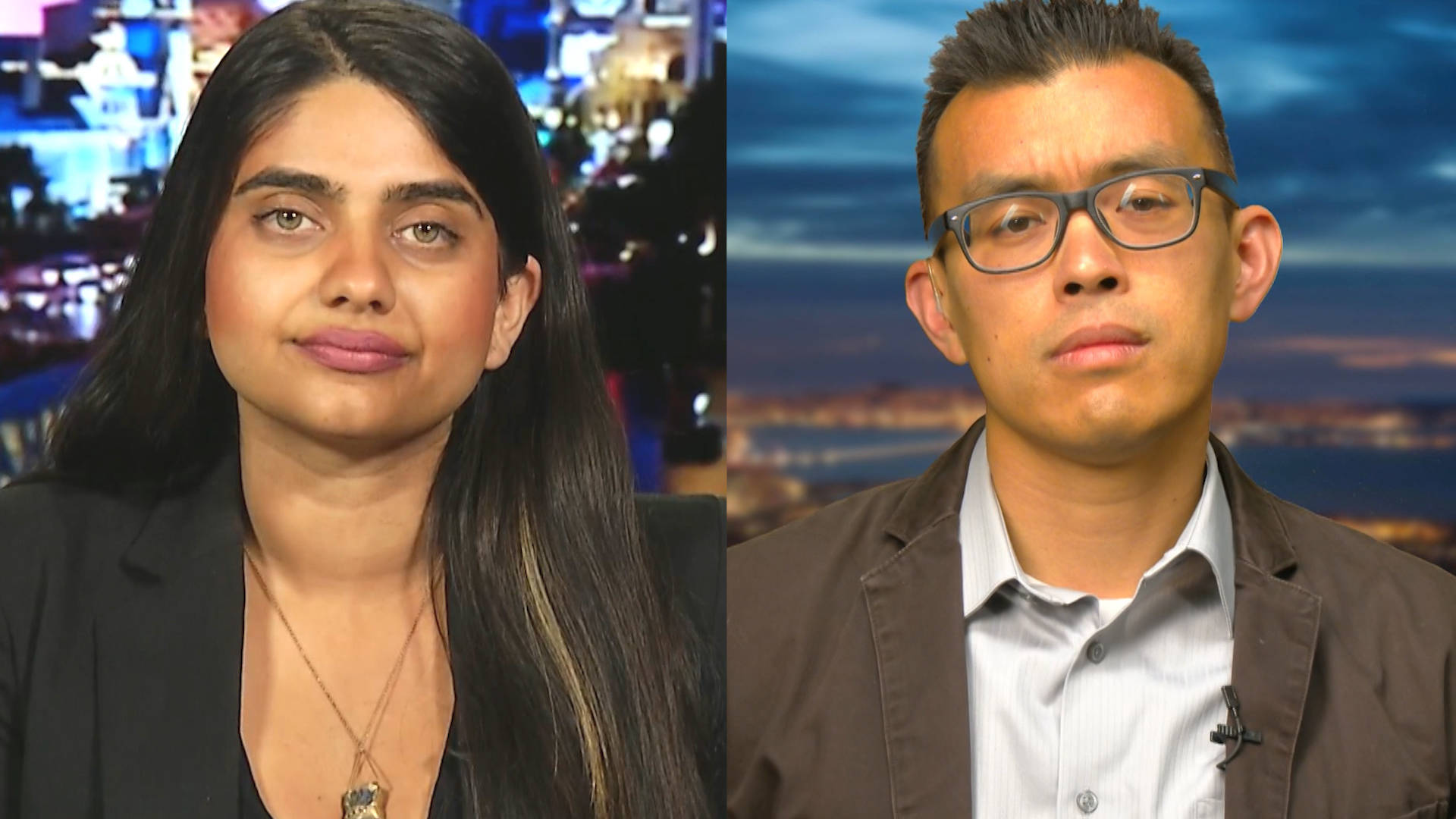This is a rush transcript. Copy may not be in its final form.
AMY GOODMAN: This is Democracy Now! I’m Amy Goodman, with Nermeen Shaikh.
NERMEEN SHAIKH: We end today’s show in Northern California, where nearly a hundred animal rights activists are free today after being arrested for carrying out a rescue mission and protest at Reichardt Duck Farm in Petaluma, which they accuse of animal torture. More than 600 activists with Direct Action Everywhere stormed the slaughterhouse Monday, fanning out in teams to chain themselves together at the entrance, freeing dozens of ducks and in some cases locking themselves by the neck to the slaughter line. Several of the activists made it inside the slaughterhouse, where they began trying to rescue ducks that were hanging upside down by their feet.
DIRECT ACTION EVERYWHERE ACTIVIST: Stay in your teams. Bands are free to move out. Michael, stay in place to act as animal care receptacle. Over. You’re good to go. We’re splitting off. Red team’s with me. Folks able to hustle a little bit more, let’s do this. Over. Try to get them off here. We’ve got to figure out how to stop this [bleep] line.
NERMEEN SHAIKH: Inside the slaughterhouse, the activists began using U-locks on their own necks, locking themselves to the metal duck slaughtering production line. In a shocking move, an employee of the slaughterhouse then turned on the belt, threatening the lives of the activists and nearly asphyxiating one man, who was dragged by his neck and wedged against a metal pole. You can hear panicked organizers frantically working to unlock him in this next video. A warning to our viewers: This footage is disturbing.
DIRECT ACTION EVERYWHERE ACTIVIST 1: Whoa! Whoa! Stop! Stop! Stop! Oh my [bleep] god! Oh my god! Oh my god! Holy [bleep]! We need to stop this right now!
DIRECT ACTION EVERYWHERE ACTIVIST 2: Stop! Please!
DIRECT ACTION EVERYWHERE ACTIVIST 1: We need to stop this right now! Holy [bleep]!
DIRECT ACTION EVERYWHERE ACTIVIST 2: Stop!
DIRECT ACTION EVERYWHERE ACTIVIST 1: What the [bleep]! Oh my god! You’re OK. You’re OK.
THOMAS CHIANG: Do you have a key? Key. Get the key.
DIRECT ACTION EVERYWHERE ACTIVIST 1: OK. What number is this lock? What number is this lock?
THOMAS CHIANG: This is eight, not seven. It’s not seven.
DIRECT ACTION EVERYWHERE ACTIVIST 1: Eight. It’s eight.
AMY GOODMAN: The activist, Thomas Chiang, was taken away by ambulance and treated for nerve damage and severe pain. He’s since been released from the hospital.
Police, armed with riot gear, arrested 98 activists who participated in the action. Despite numerous complaints, authorities have yet to investigate the Petaluma factory and slaughterhouse. Activists, however, have been repeatedly arrested, with many facing multiple felony charges and, if convicted, decades in prison.
Pulitzer Prize-winning journalist and co-founder of The Intercept Glenn Greenwald praised Monday’s action, tweeting, “The real criminality is the systemic torture and slaughter of billions of animals in the cruelest, filthiest, most sadistic conditions. It breaks multiple laws. But the police protect the corporate criminals, & instead arrest those saving lives,” Greenwald tweeted.
Well, for more, we’re joined right now by two guests. Priya Sawhney is one of the co-founders and lead investigator of Direct Action Everywhere, known as DxE. She’s speaking to us from Las Vegas. Wayne Hsiung is co-founder and lead organizer for DxE, former law professor. He was arrested during Monday’s action and was released late Wednesday. He’s facing a total of 17 felony charges in jurisdictions around the country for his animal rescue actions. Priya is also facing felony charges.
We welcome you both to Democracy Now! Wayne and Priya, thank you for joining us. Wayne, you just got out of jail. Can you explain exactly what this Petaluma farm is, what the Reichardt Duck Farm does, why you went there, why you targeted it, and hope to accomplish?
WAYNE HSIUNG: Amy, Reichardt Duck Farm is one of the largest factory farms in the state of California. They slaughter 1 million animals every year. And there have been repeated reports of animal cruelty from undercover whistleblowers, from ordinary citizens, even from people walking down the street next to the farm, because the smell emanating from this facility is so awful that it’s hard to breathe when you’re standing outside. Yet, despite the fact that there have been so many complaints, including complaints supported by licensed veterinarians, former prosecutors, criminal law professors, indicating there’s criminal violations happening at this farm and other factory farms across the state of California, the government has failed to take any action at all. And what we’ve seen in the past years, ordinary citizens have started taking action, when the government has been asleep at the wheel.
NERMEEN SHAIKH: Wayne, could you explain: What are the criminal violations that are taking place? I mean, what is legally—what is illegal that these companies are doing? Is animal cruelty of this kind illegal?
WAYNE HSIUNG: I’ll give you a concrete example. One of the whistleblower accounts we received showed a duck with a gaping hole in her side, collapsed on the ground of the factory farm, writhing in agony, rolling back and forth, unable to even stand. This animal, in all likelihood, starved and rotted to death over the course of weeks. And if you or I did this in our own home, if we had an individual puppy, kitten or duck, stabbed her in the side of her neck and left her to slowly bleed and rot to death in our home for weeks, it would clearly be animal cruelty. Yet there have been multiple whistleblower accounts across the state showing systematic violence on a scale 1,000 or 10,000 times worse than what you or I might have done to an individual duck, that clearly would be a criminal law violation if you or I did it in our own home. Yet, because these are powerful corporate interests that have deep ties to the government, donate millions of dollars to politicians across the nation, but especially in farm counties, there’s no accountability or transparency whatsoever.
AMY GOODMAN: Tell us the history of this Reichardt facility. And also, what happened to Thomas Chiang? What exactly went down in this duck facility?
WAYNE HSIUNG: Reichardt is a facility that was first investigated by Mercy for Animals in 2014. There was an employee who was a whistleblower, an undercover investigator, who found that baby birds were having their faces mutilated. There were birds whose necks were being ripped and broken kind of mercilessly and brutally, and thrown in a garbage bin, some of them probably still alive while they slowly rotted to death inside of a landfill or inside of a dumpster. And a criminal cruelty investigation was demanded by activists.
And at that point, the government did actually take some action. They brought some police officers out. They even brought a veterinarian with them. But even the veterinarian herself, who was on site with the police, said the investigation they did was completely perfunctory. They didn’t even actually walk into the barns or didn’t do a systematic investigation of the conditions inside the barns. And no cruelty charges were brought back in 2014.
Since that time, there have been multiple reports of additional cruelty happening at this facility. We’ve seen birds collapsed on the ground. We’ve seen birds with sickening diseases, that if they were able to get out and infect the human population, would endanger families in the area and families who eat the meat from this facility. And yet again, the government has not only denied us an opportunity to investigate or find out what’s happening inside this farm, they’ve now come after the animal rights activists who have been exposing it. But what we’ve seen is the response of the animal rights movement is not to shy away and dissipate in the face of these charges, but more and more people are acting up and fighting back, because we see this as a threat not just to the animals we love, but, frankly, to our own communities.
AMY GOODMAN: What are you all charged with? Almost a hundred of you were arrested.
WAYNE HSIUNG: Yeah, I mean, I’m still, honestly, shaken from the experience, because we saw some of our friends nearly decapitated. We saw teenage girls being assaulted by farmers, farmers threatening the lives of nonviolent activists. These are people who are holding flowers in their hands, grandmothers, in some cases, small children. And yet, the police did not arrest or investigate anything that was happening at the farm, whether to the animals or to the humans who were there to protest the facility’s cruelty to animals. And yet, a hundred activists now face felony charges and could face years in prison for merely protesting and trying to do something to stop the systematic cruelty happening inside factory farms.
AMY GOODMAN: And Thomas Chiang, what exactly happened?
WAYNE HSIUNG: Thomas was one of the activists who decided to lock himself to the slaughterhouse line. And while that might seem an extreme act, when you see just the systematic brutality, when you see animals being ripped to pieces alive, animals languishing and rotting on the grounds of factory farms and slaughterhouses, and you see the government doing nothing about it, and corporations making millions off of this, people are starting to use the tactics of other social movements. We’ve learned from Greenpeace, from Extinction Rebellion, the Climate Defense Project, how we can use direct action to seize attention and make sure the government realizes this is an issue.
So, what Thomas did was he was one of a number of activists who actually locked his own body and neck to the slaughter line to show solidarity with the animals and, frankly, the human beings that are being threatened by this industry. But the employees at the farm, in response to this, decided to turn on the assembly line and nearly ripped his head off. When we reported this to the authorities, they did nothing in response, and instead charged and arrested a hundred activists.
NERMEEN SHAIKH: Well, in 2018, hundreds of people with the group Direct Action Everywhere marched to an industrial shed housing chickens in Petaluma, California, that’s owned by Sunrise Farms, which supplies cage-free eggs to Amazon and Whole Foods. What happened next unfolded on Facebook Live, narrated at first by you, Wayne Hsiung. This is an edited recap.
WAYNE HSIUNG: I want to show you a photo of what’s happening inside this farm. Our activists were in this farm as recently as a couple days ago, and you see animals with huge sores on their heads, going blind, animals collapsed on the ground in feces, rotting to death. And this is standard practice.
And people don’t realize this is a farm that supplies Whole Foods and Amazon. Amazon is the largest retailer in the world. They’re shipping animal cruelty to 300 million households across the world. It is one-click cruelty. And it’s time for this one-click cruelty to stop.
And the only way to make it stop, when you’ve gone to the government, you’ve gone to law enforcement, you’ve gone to the corporations and CEOs and politicians, time and time again—the only way to make this violence stop is for people to take direct action.
UNIDENTIFIED: Hey! Wait, wait, wait, wait, wait, wait, wait.
JULIANNE PERRY: I’m Julianne Perry. I’m here with Direct Action Everywhere.
WAYNE HSIUNG: Sir, sir, sir.
UNIDENTIFIED: Back, back, back.
WAYNE HSIUNG: Sir, sir, sir.
JULIANNE PERRY: Out of the way! Out of the way!
WAYNE HSIUNG: Sir, we do have the right. [inaudible]
UNIDENTIFIED: Guys, can we move you all off the concrete? Off the concrete. The authorities have been called.
WAYNE HSIUNG: We do have a right. Do you want me to show you the statute?
UNIDENTIFIED: It doesn’t matter. I’d like to have the authorities here when we discuss it.
WAYNE HSIUNG: We’re going to have [inaudible], OK?
UNIDENTIFIED: You can come and talk to me, but you can’t overwhelm me with [inaudible].
WAYNE HSIUNG: You don’t think this animal is suffering? Animals collapsed in [inaudible].
UNIDENTIFIED: I have no idea where you got this picture.
WAYNE HSIUNG: This was taken from this barn. There’s a GPS tag on the photo.
UNIDENTIFIED: OK, so, tell you what. Would a person allow you to come in and show me?
WAYNE HSIUNG: [inaudible] statute: “Any person who impounds or causes to be impounded in any pound, any domestic animal”—
UNIDENTIFIED: I mean no disrespect to you, but, guys—
WAYNE HSIUNG: —”shall supply during such confinement” [inaudible]—
JULIANNE PERRY: We have activists putting on biosecurity gear, activists behind them holding flowers. There are hundreds of activists here today demanding to know what happens inside of corporate farms, what happens to chickens who are held in these farms. When you buy cage-free organic eggs—
UNIDENTIFIED: Get outta here! Get outta here!
WAYNE HSIUNG: We have a right under this California…
UNIDENTIFIED: You don’t have a right of anything!
WAYNE HSIUNG: We do. Do you want to read the statute [inaudible]?
UNIDENTIFIED: You do not have a right.
WAYNE HSIUNG: Well, we took pictures that showed the animals…
UNIDENTIFIED: I don’t give a [bleep] what you took.
NERMEEN SHAIKH: Activists say they removed 37 chickens and took them to get veterinary care. Police arrested 39 people for trespassing. So, Wayne, can you talk about what happened then, in 2018?
WAYNE HSIUNG: In 2018, there were two mass demonstrations outside of poultry facilities, including the largest organic suppliers of chickens and eggs to companies like Costco, Whole Foods and Amazon. And these activists were working under a legal authority called 597e. There’s a Good Samaritan statute in California that historically has been mostly applied to dogs and cats. It gives you the right to enter a facility where you have evidence that animals are being denied food and water, and just give them some care and aid. And activists set up a medical care tent. They had veterinarians inspect the footage we had to show that animals were in fact being denied access to food and water, and attempted to give these animals aid peacefully.
But, in response, we had farmworkers and authorities threatening to run us over with trucks, hurling homophobic slurs at us. It got so bad that, in one case, a young woman was endangered and felt like her life was being threatened. We had multiple activists in fear of their lives at these demonstrations. Yet, when the police were called, the police instead arrested the activists, instead of the folks who were threatening to kill them. And this is coming from the discovery in the cases. When these people—when the farmers were talking to police, they were saying to the police directly, “I’m going to kill these people.” Yet, instead of trying to do something about the violence against animals and, frankly, the violence against activists that’s happening in these demonstrations, the police, who receive and are working really in cahoots with the industry, are doing nothing about that, instead putting the activists in prison.
AMY GOODMAN: Priya Sawhney, we are watching you at that action. You were also at the one on Monday, though you weren’t arrested. But you were there confronting the authorities in 2018, as well, one of the co-founders of Direct Action Everywhere. Explain why these chickens mattered so much to you. You also then got arrested—is that right?—and face felony count, years in prison?
PRIYA SAWHNEY: Yes, I am facing—I’m facing up to a decade in prison and seven felony charges. I was one of the 58 activists who was arrested in September, in the same county, at the—for documenting criminal animal cruelty at the largest organic poultry producer in the nation.
And yeah, for me and for so many Americans and, frankly, citizens of the world, people love animals. And we know this to be true, because most people have dogs at home, and they’ll do—they treat their dogs like children. And when we show people what’s happening to these chickens inside of farms, to pigs inside of farms, people are mortified. And the reason for this is because people don’t want to see animals being hurt. And, you know, growing up as a child in India, I saw a lot of stray dogs, a lot of stray animals. And I always knew that these animals are helpless, and we need to help them and do whatever we can. So I’ve carried that into my work as an investigator for DxE.
NERMEEN SHAIKH: Well, Priya, could you explain—I mean, you face felony charges. This might be surprising to some, because it’s not clear at all what law they’re saying that you’ve broken by participating in these protests.
PRIYA SAWHNEY: Yeah. And when I was arrested in September for being at this facility, I was actually just documenting what’s happening. So I was behind the camera, watching and filming my friends and just making sure that someone is present and showing the world what’s happening. So, I was behind the camera, and I don’t know what I did wrong. And, you know, quite frankly, I don’t know what my friends did wrong, because they were just helping animals. And we were present with a letter from a legal professor stating that we had the legal right to be there, because we know from whistleblower footage that California law is being violated.
And I know Wayne mentioned this, but despite showing this to officials—and we showed these letters to officials back in September; we also did the same on Monday—we were repeatedly refused any conversations about this. And what we see is that instead of helping activists and helping the animals, the police turned their backs on both the animals who need help, both the activists who need help, and continue to arrest people for documenting animal cruelty and for helping animals.
AMY GOODMAN: In 2017, Direct Action Everywhere went to Smithfield’s Circle Four Farms in Utah, one of the worlds largest pig farms, to expose conditions at the facility. Investigators report finding piglets feeding on their own mother’s blood, pregnant pigs held in gestational crates too small for them to turn around in, and sick and feverish piglets left to die of starvation or be trampled. This is Wayne Hsiung at Smithfield’s Circle Farms.
WAYNE HSIUNG: So, we’ve got a little baby here who’s literally starving to death, because her mom’s nipples are so torn up, she can’t feed on milk. So, she’s about half the size of the piglets. And like the one-third of the piglets who are born into farms like this, she’s going to die. She’ll probably starve to death. Her face is covered in blood, and we’ve got to take her out. So that’s what we’re going to do.
AMY GOODMAN: Utah officials filed felony burglary and rioting charges against Wayne Hsiung and four other members of DxE, Direct Action Everywhere, accusing them of removing a pair of piglets, named Lucy and Ethel. The activists could face 60 years in prison. You go to trial for this in November, Wayne. We just have a minute to go, but if you can talk about the significance of Smithfield, who it’s owned by, and what you did with these piglets and why they mattered so much to you?
WAYNE HSIUNG: Smithfield Foods is the largest pork production company in the world. And in the single largest acquisition of a U.S. company in Chinese history, the Chinese government financed a deal to buy out the company. And this is a company that has systematically abused the rights of workers. They have caused environmental devastation in communities of color in North Carolina and Utah. They’ve even been caught up in human trafficking scandals in Utah. And obviously, they’re engaged in brutal abuse of millions of animals every year.
And what has happened over the past 10 years is, more and more exposure has occurred of the industry. More and more citizens and consumers are upset and furious about the violence against animals and human beings they’re seeing in factory farms. And so corporations are being forced to change.
But too often what happens, instead of real change, is they put up the appearance of change. So, Smithfield changed its motto to “Good food. Responsibly [raised].” They claimed they stopped using gestation crates. In 2017, we went into their single largest facility, Circle Four Farms in Utah, and found that they were continuing to use gestation crates, despite the fact that they had told the public they had stopped using that. But instead of trying to address the corporate fraud, the systematic cruelty at the farm, the Utah government brought prosecutions against six activists, including a retired woman named Diane Gandee Sorbi, who has no criminal record, spends most of her life and most of her time taking care of abused animals—
AMY GOODMAN: We have 10 seconds.
WAYNE HSIUNG: —in sanctuaries and shelters. And we’re seeing this happening across the country right now.
AMY GOODMAN: We’re going to do Part 2 of this discussion to find out more about these actions, with Wayne Hsiung and Priya Sawhney, co-founders of Direct Action Everywhere. Go to democracynow.org for details.
